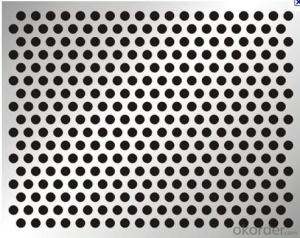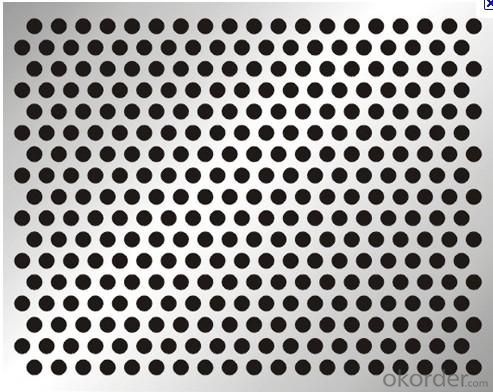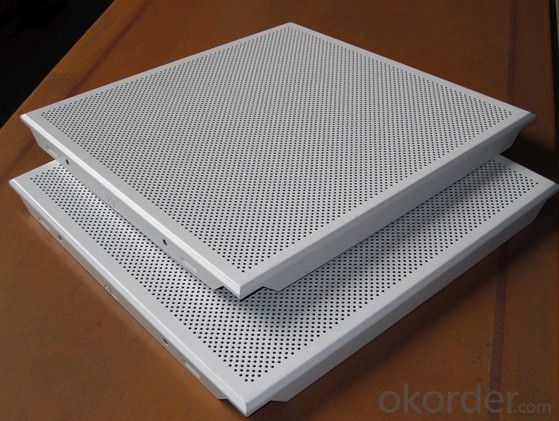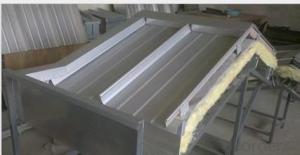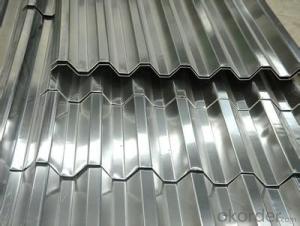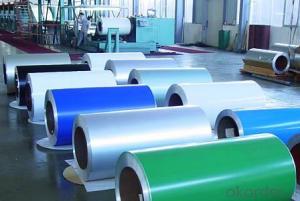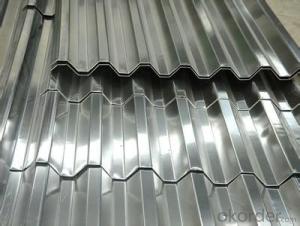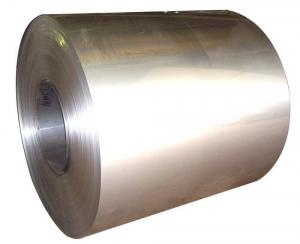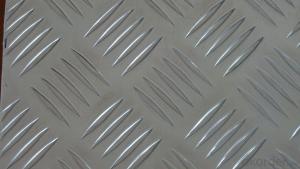Dibond Aluminum Roof Sheets
- Loading Port:
- China Main Port
- Payment Terms:
- TT OR LC
- Min Order Qty:
- -
- Supply Capability:
- -
OKorder Service Pledge
OKorder Financial Service
You Might Also Like
Aluminium alloys with a wide range of properties are used in engineering structures. Alloy systems are classified by a number system (ANSI) or by names indicating their main alloying constituents (DIN and ISO).
The strength and durability of aluminium alloys vary widely, not only as a result of the components of the specific alloy, but also as a result of heat treatments and manufacturing processes. A lack of knowledge of these aspects has from time to time led to improperly designed structures and gained aluminium a bad reputation.
One important structural limitation of aluminium alloys is their fatigue strength. Unlike steels, aluminium alloys have no well-defined fatigue limit, meaning that fatigue failure eventually occurs, under even very small cyclic loadings. This implies that engineers must assess these loads and design for a fixed life rather than an infinite life.
Another important property of aluminium alloys is their sensitivity to heat. Workshop procedures involving heating are complicated by the fact that aluminium, unlike steel, melts without first glowing red. Forming operations where a blow torch is used therefore require some expertise, since no visual signs reveal how close the material is to melting. Aluminium alloys, like all structural alloys, also are subject to internal stresses following heating operations such as welding and casting. The problem with aluminium alloys in this regard is their low melting point, which make them more susceptible to distortions from thermally induced stress relief. Controlled stress relief can be done during manufacturing by heat-treating the parts in an oven, followed by gradual cooling—in effect annealing the stresses.
The low melting point of aluminium alloys has not precluded their use in rocketry; even for use in constructing combustion chambers where gases can reach 3500 K. The Agena upper stage engine used a regeneratively cooled aluminium design for some parts of the nozzle, including the thermally critical throat region.
Another alloy of some value is aluminium bronze (Cu-Al alloy).
- Q: Can aluminum sheet withstand heavy loads?
- Indeed, the durability of aluminum sheet is such that it can endure substantial loads. Renowned for its exceptional strength-to-weight ratio, aluminum proves to be an exceptional selection for endeavors necessitating both resilience and load-bearing capacities. Notably prevalent in sectors like aerospace, automotive, construction, and marine, aluminum sheets are frequently employed in scenarios involving weighty burdens. Moreover, the innate corrosion resistance of aluminum further fortifies its capacity to bear heavy loads for extensive durations. Nevertheless, it is crucial to take into account the precise grade and thickness of the aluminum sheet, as diverse alloys and thicknesses yield differing load capacities.
- Q: Are the aluminum sheets suitable for manufacturing aircraft fuselages?
- Indeed, the utilization of aluminum sheets is appropriate for the production of aircraft fuselages. Aluminum remains a favored selection for aircraft assembly owing to its exceptional strength-to-weight proportion, ability to withstand corrosion, and simplicity in fabricating. Its lightweight nature aids in the reduction of the aircraft's total weight, thereby enhancing fuel efficiency and augmenting payload capacity. Moreover, aluminum exhibits remarkable resilience in enduring the pressures and tensions encountered during flight. Furthermore, it is a readily accessible and economically viable material, rendering it a pragmatic preference for aircraft manufacturers.
- Q: Can aluminum sheets be used for decorative or architectural purposes?
- Aluminum sheets have multiple uses in decoration and architecture. This versatile material can be easily shaped and molded into various forms, making it perfect for a wide range of architectural projects. It is commonly utilized in exterior cladding, roofing, window frames, and facades, lending a sleek and contemporary appearance to buildings. Moreover, aluminum sheets are also employed for decorative purposes like wall panels, art installations, signage, and furniture. Architects and designers often choose aluminum due to its lightweight and durable properties, enabling them to create visually appealing and functional structures. Additionally, aluminum's resistance to corrosion makes it suitable for both indoor and outdoor applications.
- Q: What is the weight of a standard aluminum sheet?
- The weight of a standard aluminum sheet can vary depending on its thickness, dimensions, and grade. On average, a standard aluminum sheet weighs around 2.7 grams per cubic centimeter (g/cm³).
- Q: This question asks about the various types of paint that can be used specifically for aluminum sheets, indicating an interest in paint compatibility and options for this particular material.
- <p>There are several types of paints suitable for aluminum sheets, each offering unique properties. These include: 1. Acrylic Paints - Water-based, easy to apply, and offer good adhesion. 2. Epoxy Paints - Known for their durability and chemical resistance, they provide a strong bond to the metal. 3. Enamel Paints - Provide a hard, glossy finish and are resistant to chipping and scratching. 4. Polyester Paints - Offer excellent durability and UV resistance, making them suitable for exterior applications. 5. Powder Coatings - Applied electrostatically, they provide a tough, scratch-resistant finish. 6. Specialty Paints - Such as heat-resistant or anti-corrosive paints, designed for specific industrial applications. The choice of paint depends on the application, desired finish, and environmental conditions.</p>
- Q: What is the typical tensile strength of aluminum sheets?
- The typical tensile strength of aluminum sheets can vary depending on the specific grade or alloy being used. Generally, the tensile strength of aluminum sheets ranges from 20,000 to 50,000 pounds per square inch (psi). However, it is important to note that this is a broad range, and the exact tensile strength can be influenced by factors such as the thickness of the sheet, the manufacturing process, and any additional treatments or coatings applied to the aluminum. Therefore, it is recommended to consult the specifications provided by the manufacturer or supplier for accurate information on the tensile strength of a specific aluminum sheet.
- Q: What is the weight of aluminum sheets per square foot?
- The weight per square foot of aluminum sheets may differ depending on the sheet's thickness or gauge. Typically, a 1/8 inch thick aluminum sheet weighs approximately 1.9 pounds per square foot. Nevertheless, thinner sheets tend to be lighter, whereas thicker sheets can be heavier. It is crucial to take into account the precise thickness of the aluminum sheet when calculating its weight per square foot.
- Q: Can aluminum sheets be used for automotive applications?
- Indeed, aluminum sheets find their utility in automotive applications. Being both lightweight and corrosion-resistant, aluminum proves to be an optimal choice for various automotive constituents. Car bodies, engine parts, wheels, and other structural components are commonly constructed using aluminum due to its desirable properties. Aluminum sheets possess an outstanding strength-to-weight ratio, thereby enhancing fuel efficiency and overall vehicle performance. Furthermore, aluminum exhibits commendable thermal conductivity, ensuring efficient heat dissipation in automotive scenarios. Consequently, the utilization of aluminum sheets in automotive production has gained substantial popularity owing to its numerous benefits.
- Q: Can aluminum sheets be used for boat building?
- Yes, aluminum sheets can be used for boat building. Aluminum is a popular material choice due to its strength, durability, and resistance to corrosion. It is lightweight and easy to work with, making it suitable for constructing various types of boats. Additionally, aluminum boats are known for their longevity and low maintenance requirements.
- Q: What is the elongation of aluminum sheets?
- The elongation of aluminum sheets refers to the ability of the material to stretch or deform before breaking under tension.
Send your message to us
Dibond Aluminum Roof Sheets
- Loading Port:
- China Main Port
- Payment Terms:
- TT OR LC
- Min Order Qty:
- -
- Supply Capability:
- -
OKorder Service Pledge
OKorder Financial Service
Similar products
Hot products
Hot Searches
Related keywords
